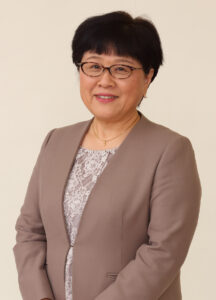MIWA Chiaki
Associate Professor
- Ph.D., Nagoya University
- cmiwa[a]hiroshima-u.ac.jp
*Please replace [a] with @ when sending e-mail.
Major Professional Backgrounds
- JOCV, Dominican Republic (1990-1992)
- Unicef, Chile Area Office, Assistant Program Officer (Education) (1996-1998)
- Nagoya University, Graduate School of International Development, Assistant professor (Overseas Fieldwork, Domestic Fieldwork) (2002-2006)
- Hamamatsu Gakuin University Junior college, Lecturer (2006-2007)
- Hamamatsu Gakuin University, Lecturer (2007-08), Associate Professor (2008-10), Professor (2010-12)
- Kurashiki City College, Professor (2012-2016)
- Hiroshima University, Graduate School for International Development and Cooperation, Associate Professor (2016-2020)
Please refer to the following link for more research achievements. Chiaki Miwa (hiroshima-u.ac.jp)
Research Areas and Themes
- Effectiveness studies of early childhood care and education (ECCE) in developing countries
- International cooperation in ECCE
- ECCE for foreign children residing in Japan
- Primary school reforms in Latin America
At the root of my research lies the question: What kind of education can improve the lives of people living in poverty? I have two major studies under the category “Effectiveness studies of ECCE in developing countries.” One is a study of community preschools (CPS) in rural Cambodia. CPS is a method of providing ECCE for young children in rural areas with no access to public kindergartens by mobilizing local human and physical resources. CPS teachers are local residents trained short term, and community people engage in CPS management. Questions were raised, such as what aspects of child development are promoted by CPS and whether their effects persist over a long time, and the answers to these questions have been searched through a panel study of about 300 children. The other is a recent study on the transition and effects of “learning through play” in ECCE in the developing world. “Teacher-led academic learning activities” have been the norm in most developing nations; however, an increasing number of countries are now introducing “learning through play” in ECCE. I am undertaking research in Mongolia and Myanmar on transitional processes to play-based learning and what kinds of practices would lead to better child development. My other areas of research include, as shown in the above list, international cooperation in ECCE, ECCE for foreign children residing in Japan, and primary school reforms in Latin America.
Research Areas and Themes of the Students
- ECCE research in developing countries and elsewhere
- Studies on international cooperation in ECCE
- Primary education research in developing countries
- Education and poverty
- Effectiveness of education
- ECCE and primary education for foreign children residing in Japan
The main research topics of the supervising students are as follows:
Master’s thesis = M
Doctoral dissertation = D
-
Issues of Expanding Access to Early Childhood Education in Rural Senegal: A Case Study of Village M [M]
-
Parenting Styles and Socio-emotional Development of Young Children among Different Groups of Socio Economic Status: A Study in City C, Indonesia [M]
-
A Study on Multicultural Teaching Competency of Kindergarten Teachers in Bandung, Indonesia [M]
-
A Study on the Effect of Play-based Curriculum on Cognitive and Non-cognitive Abilities of Kindergarten Children in Myanmar [M]
-
Developing Number Concepts: Teaching-Learning Practices of Pre-primary Students at Home and Preschool in Bangladesh [M]
-
Herder Parents’ Belief Systems for Preparing Un-preschooled Children for Schooling: A Qualitative Case Study in Rural Mongolia [M]
-
Challenges in the Transition to Communicative Language Teaching Approach: English Language Teachers’ Understandings, Attitudes, and Teaching Practices in Cambodian Lower Secondary Education [M]
-
Characteristics of Teaching and Learning Process in and Challenges of Non-formal Lower Secondary Education Equivalency Programme in Laos: A View from Andragogy Theory [M]
Message to Prospective Students
Our program is unique because it is one of the very few programs run in all English to study education sciences and practices in Japan, but it also has a relatively large number of faculty members with a wide range of specialization in international education development. I believe that your experiences in our program will enrich your professional career by upgrading your research knowledge and skills and widening your views through careful guidance from professors as well as intercultural exchanges with fellow students from all over the world.

